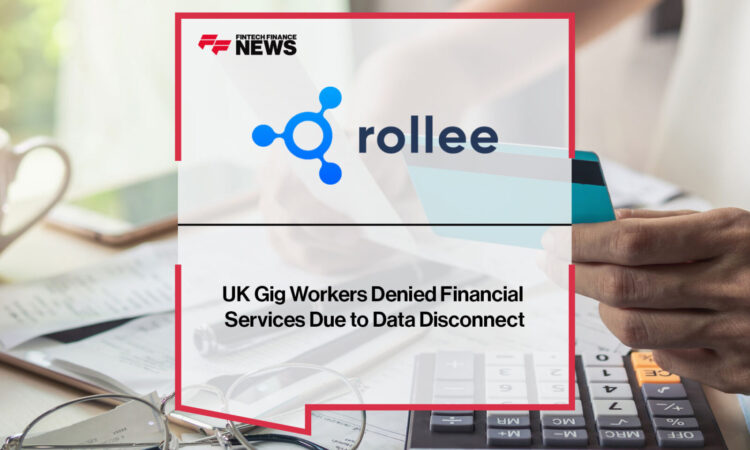
Rollee, a fintech start-up providing secure and consented access to income data, today reveals that a quarter (25%) of financial institutions surveyed struggle to access all the income and employment data when assessing UK gig worker applications. The research revealed 70% of UK gig workers struggle to get approved access to financial products. Comparing these insights to research by Rollee in 2022, this figure has only improved by 6%.
Over a third (38%) UK gig workers are not confident that their bank has a complete picture of their income streams when they are applying for a financial service. The findings in The Gig Economy Equality Gap report from Rollee explores the current state of gig workers’ financial exclusion, the challenges banks experience undertaking credit checks, and a subsequent data disconnect.
Of 1001 gig workers surveyed, two out of three (66%) have been denied a loan since being a gig worker, despite knowing they have a good credit score. On average, gig workers must apply for three credit cards or loans before being approved. While a third of gig workers (34%) have lost out on a new home due to being declined by a bank, building society, or a renting agency, despite knowing they have affordability.
Financial service accessibility concerns
80% of gig workers believe they don’t have the same access to financial services as traditional full-time workers, causing financial stress and leaving them to consider other options. In fact, over a third (39%) of gig workers have considered giving up a freelance job to get a full-time job to improve their chances of gaining access to a financial service.
After submitting an application, over two thirds (68%) of gig workers felt that the financial institution didn’t take the time to accurately consider all their income and employment data. Many gig workers are finding it difficult to find out why their applications are unsuccessful too. More than two fifths (42%) said when they have been denied a financial service, such as a loan or mortgage, the financial institution has not provided a reason for the unsuccessful application.
Exclusion by financial institutions is simply one of the many challenges gig workers are facing. The data revealed that over the past 12 months, 86% of gig workers have taken on at least 2 additional jobs in order to manage financially during the cost-of-living crisis.
Financial services and the data disconnect
Of 503 individuals in financial institutions surveyed, 73% said their current risk assessment processes are not able* to see a complete picture of a gig worker’s payments, income, and employment records. While just over a third (34%) said they are more likely to approve an application from a PAYE worker than a gig worker because they have greater transparency of their income and employment data.
Ali Hamriti, CEO and Co-founder at Rollee comments: “This research reveals that financial institutions are struggling to grant gig workers access to financial products because of a data disconnect in credit checks. This is having critical repercussions on the lives of many self-employed workers, causing them to face high levels of financial exclusion and being denied financial products despite having the necessary levels of affordability.”
“To avoid excluding a growing market of gig workers, bridging the gap caused by this data disconnect is vital. Financial institutions must find solutions to access a broader range of data, including verifiable data points about a worker’s income, employment status and activity. Having this kind of holistic view will ensure that credit assessments are not just based on financial transactions, but also account for gig workers’ ability to repay. This is the final frontier of open finance.”
Rollee helps financial institutions to make fair and accurate decisions when applying for financial services. In the UK, Rollee is working with auto lenders, mortgage brokers and accountants to provide them with a gateway to gain easy, reliable and fast access to income and employment data.
The full findings of The Gig Economy Equality Gap survey can be viewed in the full report.
*23% respondents agreed with the statement ‘Our current risk assessment processes can see a complete picture of a worker’s payments, income and employments records’.






